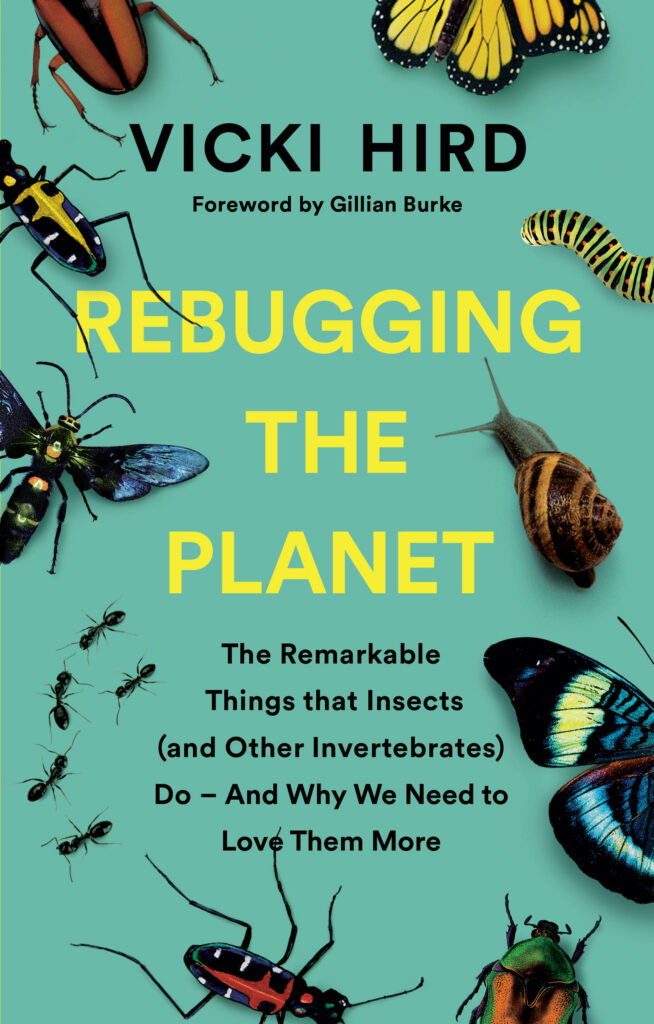Have you noticed fewer bugs on your windshields? With 40% of insect species at risk of extinction, and an impending “insectageddon,” we need to take steps right now to “rebug” our planet, says Vicki Hird. And she has a book full of ideas about how we can do that.

By Vicki Hird
Chelsea Green Publishing, 2021
224 pages, paperback, $17.95
Like many of us, Hird uses the word “bug” as a catchall term that includes insects, spiders, terrestrial crustaceans, millipedes and other arthropods. She expands the category to also include earthworms and the occasional slug.
Rebugging, Hird says, is more than simply reintroducing species back into their habitats. It involves thinking about how we live, buy things, approach our food system and garden. It involves how we could join with others to help enact policy changes that improve our planet. Because, Hird notes, a world made safe for bugs will benefit humans, too.
That’s because bugs sit at the bottom of the food web. Remove them and birds, fish, amphibians, reptiles, bats and other mammals that depend on them for food will disappear. Bugs are essential to our food web, too. Knock out the bees and you lose billions of dollars’ worth of pollination services and the food crops they produce.
Hird kicks off her book by challenging us to rebug our attitudes. If you don’t love insects, spiders and other invertebrates, now’s the time to learn why they matter. So many of us grow up with negative images and fear of insects, especially those that sting and bite. But here’s the thing: bees aren’t the only ones pollinating our crops. Wasps and flies pollinate flowers, too. Not only that, wasps are great at pest control (I’ve watched them sting and carry off caterpillars).
Hird devotes an entire chapter to what bugs do for us. They help aerate the soil, decompose dead stuff and recycle nutrients, and disperse seeds. Some protect water quality, others protect plants, and even others have medicinal uses. And, seasoned right, bugs make tasty meals for humans.
Hird offers advice for growers who want to rebug their farms and gardens, citing a literature review of nearly 100 scientific studies. Organically farmed acres have more species richness (biological diversity that contributes to pest and disease control of crops) than non-organic.
She also shows how our shopping choices affect the lives of arthropods. Microplastics — those tiny fragments released from artificial fibers — don’t just kill fish and turtles. They harm invertebrate populations, creating a cascade effect in the ecosystem. When aquatic insect larvae ingest plastic particles, the leaf litter they don’t eat builds up and affects the larger stream ecosystem.
Additionally, Hird addresses climate change, politics and the economy. In every chapter she offers “rebugging solutions” and concrete actions people can take to make their neck of the woods a better place for bugs. She even provides the occasional hands-on science activity for kids. Notes at the end of the book provide supporting research for each chapter.
– Sue Smith-Heavenrich
